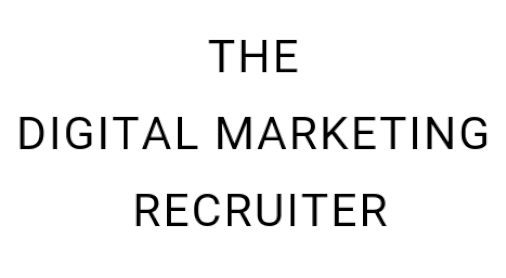The Digital Marketing Recruiter is an executive search firm that is retained by both agencies and corporate organizations to lead the search for their marketing leadership. Often this will be for the Chief Marketing Officer (CMO). When I am interviewing potential candidates for a Chief Marketing Officer position, I craft my conversation to understand a number of things about the prospective candidate – their work history, their career aspirations, successes, culture that they thrive in, team-building skills, leadership style, family commitments, out-of-work interests – and a lot more. I have put together a list of the Best CMO Interview Questions for you to use.
If you’re looking to hire a Chief Marketing Officer, contact me and I would be happy to share my recruiting process with you.
Here are 23 of the best CMO interview questions to ask when interviewing a CMO candidate for your organization:
1. What do you consider the biggest challenges for a CMO these days? How do you work with your executive team to get the most out of the marketing function?
This question will allow the candidate to showcase their leadership skills and style while revealing challenges they may struggle with. It’s also key in determining how they communicate with executive leadership and hold their marketing team accountable. Marketing is challenging because it’s multifaceted: its math, art, branding, sales, event management, digital execution, project management – a good marketing leader can connect those and build the right working contracts among their peers.
2. In your own words: What do we do?
A chief marketing officer applicant should have a very good idea of what your company does, and they need to be able to explain it in simple words. Candidates for a CMO role should have researched your organization before the interview and be comfortable answering this question in an interview.
3. Tell me about a success you’re particularly proud of in your career and why it was a success.
Similar to the question above, think of this one as a better way to ask an interviewee: “What are your greatest strengths?” Pitching a question, the candidate might find flattering and fun to answer can empower them to come out of their shell during the interview.
This is what makes asking about their past success so useful — you can uncover more intimate details about their professional growth and the types of assignments they thrive on. The best answers to this behavioral question won’t just reveal the work a candidate is most comfortable with, but also why this work plays to their skills and if those skills would be of use to your company.
4. Ask questions that determine cultural fit.
You want to hire someone who fits in with your company because people who share common values with their employers tend to be more successful in their jobs. Asking candidates about your company’s culture will help you figure out who they are as a person and if their values match up with yours.
5. How do you approach branding a company, its products, and services?
The problem that branding and marketing suffer from is that everyone has an opinion about it How does the CMO balance the opinions of the executive team, the CEO, and board members with the ability to test and use data? It can be tricky for a marketing leader to effectively manage the branding process, without burning a lot of team bandwidth.
6. What pricing frameworks do you prefer to use?
Pricing is very complex these days, from usage-based or volume-based pricing, value-based vs. market-based pricing, paying for access or ownership of a product or a subscription, etc. It’s a complex discipline; how versed is the CMO in dealing with all the pieces of the marketing pricing puzzle?
7. What is your approach to market research, both customer and competitor focused?
This will tell us how innovative the candidate is at using new forms of research in the digital space (A/B testing, social network inquiries, online data) vs. traditional research and higher-priced external research. How focused is the candidate on the competition? This is also a great opportunity to hear what they know and think about your current competition.
8. What are your 3 biggest accomplishments?
I ask this question because someone’s answer can teach me a lot. Are their successes professional or personal? What do they consider important?
9. How have you used new technology or innovations to help your employer?
Marketing is constantly changing, and it’s important that my CMO keeps up on the latest news. But I don’t just want to know if they’re keeping up with the changes – I want to know how they’d use new ideas to help my business.
10. What brought you here today?
Anyone can hand me a resume and show me their career history. But only a special candidate can or will explain how their career history helped them grow beyond their current position.
11. If you could restart your career from the beginning, what would you change?
I don’t ask this question so that the candidate can tell me about career mistakes they’ve made. I’m more interested to see how they used their mistakes as a learning experience. It’s also interesting to see how they think the field has changed since they first started their career, and what additional experience they’d like to have.
12. Tell me about a mistake you made during a project or at a certain point in your career.
Think of this behavioral question as a more specific way to ask an interviewee: “What are your greatest weaknesses?” By asking candidates this question, you can discover many important things about them that you wouldn’t learn from their resume.
Listening to a candidate describe a mistake they once made can show you how much self-awareness they have. The best answers indicate both their thought process in making that mistake and what they learned from it. Just because it was a mistake doesn’t mean the candidate was being negligent — encourage them to explain their choice and what they’d do differently today.
13. Describe a time you had a conflict with a coworker, and how you resolved it.
Candidates who know how to diffuse issues with their colleagues help foster the healthy, nurturing culture your company needs in order to grow.
Asking about the applicant’s experience resolving a conflict with a coworker can reveal how diplomatic they can be toward differing opinions among team members. Specifically, employers can learn two big pieces of information about a candidate from their answer to this question: how they view themselves in conflicts, and where the candidate ranks their priorities in relation to the other employees involved.
It’s not important that you agree with the resolution the candidate came to. It’s more important that you can determine how effective their resolution was at accommodating everybody’s — and ultimately, the business’s — needs.
14. What would you do on your first day at the job?
I like this question because it shows what kind of leader my employee would be. Would they want to start implementing changes right away, or would they take time to evaluate what we were doing before from an insider’s perspective? How would they handle having a completely new set of coworkers?
A qualified Chief Marketing Officer isn’t just skilled to do the job, they will also fit your company’s culture and have a proven track record of driving measurable results. During the recruitment process, the interview should be an open discussion about their management style and compatibilities, their technical skills, and their willingness to learn.
I need to get to the heart of the candidate’s personality, strengths, weaknesses, and skills.
15. Tell me something you had to learn very quickly but knew nothing about before.
This behavioral question is a popular one among employers today. It’s simply not realistic to expect candidates to already know your business or industry when they first walk through the door. What’s important is how fast they can learn. Want to find out if your applicant can learn the skills needed in your industry? Ask them how they’ve done so for others in the past.
Employers can infer a lot about candidates as they explain their past experience with a challenging new concept. Not only will you find out what subjects a candidate isn’t often exposed to, but you can also learn how confident they are in unfamiliar territory.
Did an applicant’s answer impress you? Ask them a bonus follow-up question:
“How would you explain this concept now to someone who isn’t familiar with it?” The answer can give you deeper insight into the applicant’s learning style, as well as any mentorship potential that would allow them to pass on their knowledge to other employees.
16. Tell me about a time you had multiple assignments with conflicting goals or deadlines, and how you completed each of them.
At some point in our careers, we all inherit a workload whose contents pull us in different directions — and yet, everything in this workload needs to get done. So, if it’s such a normal experience, what are you really getting out of posing the question above to your interviewee?
When asking about a candidate’s experience with conflicting assignments, the insight you’re looking for isn’t how many things they can handle at the same time. It’s how efficient they are at completing it all.
Ultimately, answers to this question can tell you a story of creative problem solving, letting you in on effective approaches to time management that the candidate might be able to bring to your team.
While questions that focus on a candidate’s resume can give you appropriate context around the experiences they’ve had, it’s crucial that you incorporate these behavioral interview questions as well. Ask a few of the above questions in your next interview — whether it’s in person or over the phone — and see how they help you come to a final hiring decision.
17. In your digital marketing approach, how do you balance inbound and outbound marketing?
Great marketing teams strike the right balance between many different marketing levers. The Inbound vs. Outbound debate is a great test that doesn’t really have a right answer, but provides good insight into how much your candidate will count on “pay-to-play,” or noise-making marketing efforts, vs. harder to build, but longer-term organic and inbound marketing strategies.
18. If you could start your last role over again, what would you do differently?
This gives us insight into the candidate’s ability to be self-aware, their appetite for growth, and their willingness to share things that may not have gone well.
19. What do you think of the art and science of marketing, and where do your strengths lie within that?
Marketing is a delicate blend of art and science. A good marketing leader can use the science of data, strategy and analytics to be effective in optimization, while mastering the art of design (finding great slogans and a voice for your brand). This question will help you decide if their strengths are complimentary to the other executive members and the marketing team.
20. Knowing what you know so far about our company, what strategies and tactics would you put in place to help drive revenue?
This question allows the candidate to show off their knowledge of your company so far, and gives them the chance to ask questions. Ultimately, this is an opportunity to see how innovative they can be.
When it comes to modern marketing, having the skills – as well as the personality and willingness to keep learning – are key traits in a CMO. By asking strategic and revealing questions in the interview, you’ll have the tools you need to find the most qualified candidate.
21. What’s on your marketing dashboard, and what are the KPI’s you track?
This gives me a few insights – what does the CMO care about, and can they turn it into a concrete result? What does marketing success look like to this candidate? For example, if they’re tracking customer satisfaction, that shows they think about marketing through the lens of customer experience. If they track average revenue per customer, they’re thinking about what marketing influences. All of this tells us how they answer the question, “What is marketing?”
22. Share some tools and techniques you’ve learned in the past year, and what your takeaway was?
This is a question to determine how current they are, and how much they are “learners” versus “doers.” In an industry where being relevant is key, is your potential new CMO willing to learn and grow? In the field of marketing, if they don’t innovate, they’re going backwards.
The growth in marketing software has been substantial in the past few years. I am familiar with upwards of 950 different marketing technologies available to marketers. While no one needs to know all these tools, it’s a clear indication that one needs to stay on top of the quickly changing digital landscape.
23. Pitch our company.
High-ranking executives like the CMO will lead your brand and be the face of the marketing team’s successes and failures. Asking the candidate to pitch the company as if they were in a prospective client meeting is a good way to determine if they are prepared to represent the company to your target clients.
The average CMO tenure is 18 months and the responsibility of this is shared by company and candidate. Ultimately neither side knows how to properly run the interview process. Both sides end up making a decision from far too little data. If you are interviewing for a CMO job and want to make sure you can succeed when you get there you need to prepare properly for the interview. From the interview, the candidate needs to glean the corporation’s vision of marketing. Does this vision actually match the expectations of the job you will do? You need to be able to ask the right CMO interview questions.
Too often, corporations have lofty marketing goals but are unwilling to give the CMO the latitude to create marketing programs that will make those goals possible. Bottom line is to achieve success in today’s marketplace you must successfully differentiate your brand and products. However, most corporations take a risk-averse approach to marketing that leaves them with a lot of me-too advertising, you can throw away remarkable amounts of money when your advertising looks like all your competitors. You always have to protect your brand, but you can do that and still have great marketing. Unfortunately, it is rare a CEO knows enough about marketing to understand what differentiation is, let alone why it is important. That is not to take anything away from a person who is probably extremely qualified to be the CEO, most CEO’s simply have not spent any significant time during their careers in a marketing role. So, they manage the CMO the same way they manage the CFO and it quickly becomes a disaster.
As a CEO, it’s understandable to not have in-depth knowledge in the marketing department, but at least you can know what strong points to look for when searching for the next CMO. In an ever-changing marketing world, it only makes sense that your marketing workforce evolves with it. And who better to guide your marketing team than the Chief Marketing Officer. As a CMO executive recruiter, I know the shifting expectations and challenges of the CMO role and have identified the traits needed to overcome them.
Prior to beginning the search for your CMO I recommend spending time going through these following 5 questions:
- How do you plan to define success for your new CMO in the first 12 months and the first 3 years?
- Does your company have a marketing strategy to differentiate itself from the competition or are you looking for the CMO to create such a strategy?
- How does your company’s culture impact its marketing plan?
- How would you grade your company’s marketing over the past two years?
- How has marketing impacted your company’s bottom line over the past two years?
Properly hiring a CMO is the most important and challenging task any organization has. Unfortunately, the CMO candidate often fails before they even started because they did not find out enough about the opportunity before accepting it. CMO will have big deliverables, which can be obtained if they hire the best possible candidate and give him/her enough latitude to truly differentiate. Too often new CMO’s are expected to do great things while only painting inside the lines. This is another reason to hire me to lead the search for your next CMO.
Article provided by, The Digital Marketing Recruiter – a recruiting firm focused exclusively on filling digital marketing positions throughout the USA
We welcome your inquiries….
Email: info@TheDigitalMarketingRecruiter.com


